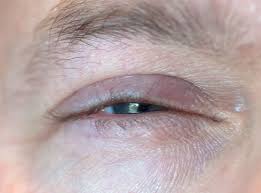A Place Called Doubt

The term “botched execution,” much in the news of late because of the case of convicted murderer Clayton Darrell Lockett, might seem to imply that the condemned prisoner has remained alive. Mr. Lockett, however, died, at least indirectly as a result of the lethal three-drug cocktail administered to him on April 29. His death was technically due to a heart attack, after he showed signs of life and even tried to speak at a point when the drugs should have conclusively dispatched him and the official execution was halted.
It turns out that the intravenous line sending the drugs into his body might at some point simply have slipped out (his body was covered during the procedure) but his protracted death has brought the subject of lethal injection as a means of execution – and the death penalty itself – into the global spotlight.
Considering that the crime for which Mr. Lockett was sentenced to death was the shooting and burying alive of an acquaintance, it’s hard to argue that, even if Mr. Lockett had an unnecessarily protracted painful death, it was devoid of some measure of justice – to the degree justice can be attained in this world.
But it has nonetheless raised the question of whether the combination of drugs used by some states is the best method of execution, and aroused the ire of anti-capital punishment activists.
The latter’s activities, ironically, have increased the likelihood of messy executions. Because the simplest and most humane means of causing a person’s death is not a combination of drugs but rather the straightforward administering of a barbiturate like sodium thiopental or pentobarbital, routinely used at low doses in medical procedures as anesthetics and invariably lethal in larger ones. Under pressure from death penalty opponents, however, drug manufacturers have halted supplies of those drugs to U.S. prisons (and require all resellers to do the same). Medical societies, moreover, do not permit physicians to participate in executions.
The drug issue, however, is resolvable, and prison personnel can be trained to competently place IVs and administer the substances. What most people are really talking about when they talk about “drug cocktails” and “botched executions” is the death penalty itself.
From a Jewish perspective, even aside from the import of the Sheva Mitzvos B’nai Noach, the removal of a dangerous person from the world is wholly proper. And many Torah-respecting Jews, as a result, consider the death penalty in the United States to be a good thing.
And yet there is the sobering fact that the wheels of American justice have on a number of occasions gone off track. Just last month the murder conviction of Jonathan Fleming, 51, was vacated by a New York judge when evidence emerged proving that, despite an eyewitness’ claim, he was out of state when the crime took place. New York has no death penalty, but if it did, the new evidence might have been discovered too late. As it is, Mr. Fleming spent nearly half his life behind bars.
Then, this month, Brooklyn prosecutors dismissed murder convictions against three brothers who spent decades in prison for two separate homicides. A discredited detective, it has been charged, convinced a drug addict to falsely finger them in the crimes.
Nearly 70 people have been released from death row since 1973 after evidence of their innocence emerged. Many of these cases were discovered not because of the normal appeals process, but rather as a result of new scientific techniques, investigations by journalists, and the work of expert attorneys, not available to the typical death row inmate.
So where does that leave a believing Jew on the topic of the death penalty? In a place too many of us don’t seem to believe exists: doubt.
We’re quick to recognize many of the unhealthy influences of contemporary society on our own behavior. Our times assault us with attitudes, crassness, immorality and materialism, and we do our best to prevent ourselves from being affected by it all. One societal ill, however, that seems to have snuck in under our religious radar is something that thoroughly riddles American politics and media: the need to “take a side” on every issue, and to proclaim that we know what we really cannot.
The ailment infects pundits and would-be pundits even in the charedi world, and it is not to our credit that it rages unchecked. To be sure, there is nothing wrong with having opinions on all sorts of matters. But, all too often, conclusions are offered with urgent conviction but without the complete knowledge, comprehension or objectivity that truly intelligent opinion demands.
It would do us well to resist the compulsion to pontificate when the topic at hand – and the death penalty is but one example – should inspire instead a sort of humble ambivalence.
© 2014 Hamodia




Recent Comments